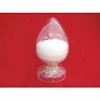- Pharmaceutical[10]
- Healthcare Supplement[10]
- Food Additives[7]
- Plant Extract[10]
- Organic Intermediate[1]
- Contact Person : Mr. Xu Fred
- Company Name : Shanghai Waseta Int'l Trading Co., Ltd.
- Tel : 86-21-61049360
- Fax : 86-21-61049330
- Address : Shanghai,Shanghai,Room2001-2002,Golden Eagle Edifice B,No.1518Minsheng Road,Pudong New Area
- Country/Region : China
- Zip : 200135
Beta alanine
CAS 107-95-9 Beta Alanine 3-Aminopropanoic acid; beta-aminopropionic acid EINECS 203-536-5 Best price in China
Product Name: beta-Alanine
CAS RN.: 107-95-9
EINECS: 203-536-5
Molecular Weight: 89.09
Molecular Formula: C3H7NO2
Synonyms: 3-Aminopropanoic acid; b-Alanine,(3-Aminopropionic acid); 3-aminopropionic acid; H-BAla-OH; H-beta-Ala-OH~3-Aminopropionic acid; β-Alanine-14C; beta-aminopropionic acid
Melting Point: 197-202°C
Beta-Alanine is a non-essential amino acid obtained through protein foods and it naturally occurs in the body. Beta Alanine (BA) is found naturally in both the body and in foods such as chicken. Beta-Alanine’s performance enhancing effects are due to its ability to raise intra-muscular levels of carnosine. Research has shown that there is a strong relationship between carnosine concentrations in muscle and high intensity exercise performance.
Good natural dietary sources of beta-alanine are believed to be obtained through ingesting the beta-alanine containing dipeptides: carnosine, anserine and balenine, rather than directly ingesting beta-alanine. These dipeptides are found in protein rich foods such as chicken, beef, pork and fish. It is predominantly through ingesting the dipeptide carnosine that we ingest most of our beta-alanine, as the two other dipeptides are not found nearly as plentiful in our typical coniferous diet .
However, obtaining beta-alanine through these dipeptides is not the only way, as our bodies can synthesize it in the liver from the catabolism of pyrimidine nucleotides which are broken down into uracil and thymine and then metabolized into beta-alanine and B-aminoisobutyrate. Of course, it can also be ingested through a Beta Alanine Supplement which is the focus of this article.
Scientists have demonstrated that high intensity/high volume training significantly increases muscle carnosine concentrations in untrained subjects. However this rise in carnosine levels soon plateaus, after which, the only way to increase levels further is to supplement with BA (carnosine itself is poorly absorbed in humans). BA has been shown to raise muscle carnosine levels by 64% in as little as 4 weeks, and by 80% after 10 weeks.
Carnosine is a naturally occurring di-peptide that is found in both type 1 and type 2 muscle fibers (but in significantly higher concentrations in type 2 fibers) and its primary function is to act as an intracellular buffer of hydrogen ions (H+). When we exercise, especially when it’s high intensity exercise, our bodies accumulate a large amount of hydrogen ions (H+), causing our muscles’ pH to drop (becoming more acidic).
Supplementing with Beta Alanine:
Increases strength endurance Increases force output Increases anaerobic threshold Increases work capacity Delays fatigue May improve body composition Works synergistically with Creatine Enhances performance in all athletes regardless of the intensity or duration required by the athletic discipline.This acidification of the blood causes fatigue, decreases muscular performance and reduces the magnitude of neural drive – forcing muscular failure. Moreover in a more acidic environment ATP is less effective and the release of calcium – a key component to muscle contraction – is hindered substantially. In addition to causing a drop in muscle pH, hydrogen ions also inhibit the PFK enzyme (reducing the body’s capacity to produce energy from glucose), as well as interfering with the formation of the actin-myosin cross bridges (necessary for muscle contraction to occur). By maintaining higher levels of muscle carnosine through beta alanine supplementation, it is possible to delay the build up of H+ and the resultant detrimental effects this accumulation causes. Furthermore carnosine helps activate the enzymes responsible for generating muscle contractions (myofibrillar-ATPase).
By generating this enzyme it appears that Carnosine prevents fatigue through yet another mechanism entirely
Beta alanine

